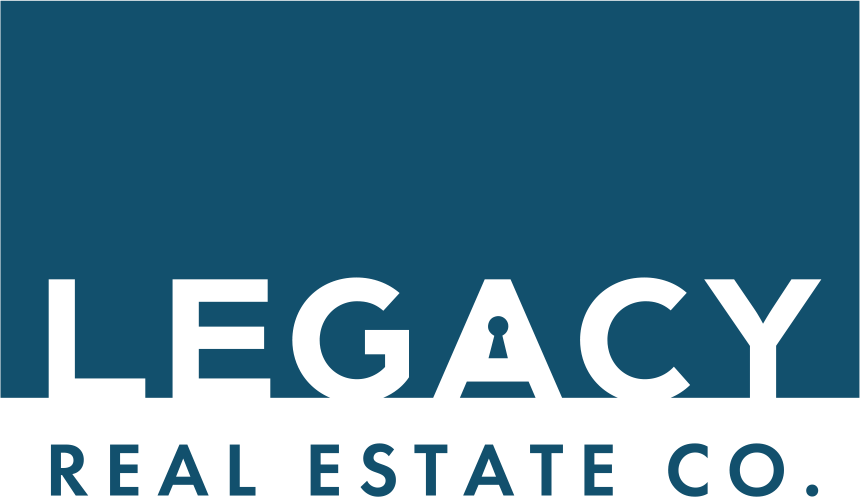Closing on a home is an exciting milestone, but understanding the financial responsibilities involved is crucial. The cost to close on a house includes various fees, taxes, and expenses, which can vary depending on location, property price, and other factors. Knowing these costs upfront empowers buyers to prepare effectively and avoid surprises at the closing table. Here’s a comprehensive breakdown of what to expect regarding closing costs.

Understanding Loan Origination Fees
Lenders charge loan origination fees to process your mortgage application. These fees typically range from 0.5% to 1% of the loan amount and cover various administrative tasks, including underwriting, document preparation, and credit checks. For example, on a $300,000 loan, an origination fee could be between $1,500 and $3,000. While these fees are common, understanding how they’re structured and whether they’re negotiable is essential for homebuyers aiming to manage costs.
Some lenders offer “no-fee” loans, but this often means costs are shifted elsewhere, such as a higher interest rate. Carefully reviewing the Loan Estimate form provided by each lender can help you compare these fees. Borrowers with strong credit scores or significant down payments may have more leverage to negotiate reduced fees. Additionally, ask about discounts or waivers; some lenders may offer reductions during promotions or to long-term customers.
Working with a trusted mortgage broker or advisor can also help identify lenders offering competitive terms. They can guide you through understanding the terms of your loan and ensuring there are no hidden costs. Being informed and proactive during the loan process helps ensure that origination fees remain manageable and align with your overall budget. Taking the time to evaluate and compare options can make a significant financial difference when it’s time to close.
Preparing for Title Insurance
Title insurance protects buyers and lenders from potential ownership disputes or claims against the property. This one-time fee is typically paid at closing and generally ranges from $500 to $3,500, depending on the property’s value and location. For example, a property worth $400,000 might incur a title insurance premium of around $1,000. While this might seem like a significant cost, it provides essential peace of mind that the property’s ownership is free of legal issues.
Lenders require a title insurance policy to safeguard their financial interests, but buyers can also purchase an owner’s title policy for additional protection. This optional policy shields homeowners from unforeseen claims, such as liens or fraud, that could arise after closing. Although it adds to upfront costs, many buyers consider it a worthwhile investment to avoid potential legal and financial issues.
Title insurance rates can vary between providers, so it’s a good idea to shop around and compare costs. Some states regulate title insurance premiums, which standardizes fees, while others allow more variability. Additionally, bundling lender and owner policies through the same provider can often lead to discounted rates.
Beyond cost, understanding the services provided by your title company is equally important. Title companies perform a thorough title search to identify potential issues before issuing insurance, ensuring the property is ready for transfer. Buyers should review all title documents carefully and address any questions with their agent or attorney. Ensuring the title is clear is a vital step toward closing with confidence.
Budgeting for Escrow Fees
Escrow services play a critical role in the home-buying process, ensuring that funds and documents are securely managed until all transaction conditions are satisfied. The company facilitating these services charges escrow fees, which typically range from $300 to $1,000 or more, depending on the complexity of the deal and local market conditions. Both buyers and sellers often share these fees, although the specific split varies by region and negotiation.
For buyers, escrow fees may include costs for holding funds like the down payment, managing prorated property taxes, and handling prepaid homeowner’s insurance premiums. These services ensure that the financial and legal aspects of the transaction are handled impartially and efficiently. While the fees might seem like just another expense, they help avoid disputes and delays by maintaining transparency in the process.
Additionally, escrow officers coordinate closely with lenders, title companies, and real estate agents to ensure that all paperwork and financial obligations are completed correctly. Their oversight reduces the risk of errors that could otherwise derail the transaction. When reviewing the escrow fee breakdown, it’s essential to understand what each line item covers to ensure clarity.
In competitive markets, buyers may be able to negotiate with sellers to cover part of the escrow fees as part of the purchase agreement. While not guaranteed, it’s worth discussing this possibility during negotiations. Escrow fees are a necessary cost of ensuring a smooth closing, and understanding their role in the transaction helps buyers feel confident as they approach the finish line.
Appraisal and Inspection Costs
Property appraisals and inspections are critical steps in the home-buying process, helping protect buyers and lenders from unforeseen issues. Most lenders require an appraisal, which determines the property’s market value. This fee, which typically costs between $300 and $600, ensures that the home is worth the amount being financed, reducing financial risks for both parties.
Inspections, while not always mandatory, are highly recommended to identify any structural, mechanical, or safety concerns within the home. A standard home inspection typically costs $300 to $500, though specialized inspections for issues like mold, pests, or radon can add to this expense. Combined, these costs can total $1,000 or more, but they provide invaluable insight into the home’s condition and potential repair needs.
Budgeting for these expenses is important, as they are paid out-of-pocket before closing. Skipping inspections to save money might seem tempting, but doing so could lead to costly surprises after the purchase is complete. In cases where significant issues are uncovered, buyers can negotiate repairs or credits with the seller, offsetting some of the initial costs.
Both appraisals and inspections provide critical information that helps buyers make informed decisions. While they are separate processes, they serve complementary purposes: one ensures financial prudence and the other safeguards against unexpected repair costs. Together, these services are essential components of a successful home purchase.
Understanding Taxes and Recording Fees
Taxes and recording fees are unavoidable costs that contribute to the total amount owed at closing. Property taxes are often prorated, meaning buyers pay for the portion of the year they will own the home. Depending on the local tax rate and the property’s assessed value, these costs can range from a few hundred to several thousand dollars.
Recording fees, charged by local government offices, are required to officially register the property in the buyer’s name. These fees vary widely but typically range from $25 to $250. While these amounts may seem small compared to other closing costs, they are vital to finalizing the transaction and ensuring proper ownership records.
In addition to these fees, buyers might also encounter transfer taxes, which are charged by state or local governments when property ownership changes hands. These taxes are usually calculated as a percentage of the sale price and can significantly increase closing costs, particularly in states with higher rates.
Buyers should carefully review their Loan Estimate and Closing Disclosure forms, which outline all tax-related expenses, to avoid surprises. Working with a knowledgeable real estate professional ensures that buyers understand these fees and their implications. Having a clear picture of these costs helps avoid last-minute hurdles and ensures that closing goes smoothly.
Negotiating Seller Contributions
In some transactions, sellers may agree to contribute toward the buyer’s closing costs, reducing the financial burden of purchasing a home. These contributions, known as seller concessions, are particularly common in slower markets or when the seller is motivated to close quickly. The amount a seller can contribute depends on the type of loan and the property’s sale price, with limits typically ranging from 3% to 9% of the purchase price.
For buyers, seller concessions can cover expenses such as loan origination fees, title insurance, escrow fees, or even prepaid taxes and insurance. These contributions can be negotiated during the offer process or as part of counteroffers, providing valuable relief for buyers working within tight budgets.
While seller contributions are a valuable tool, it’s important to approach negotiations strategically. Overreliance on concessions might make an offer less attractive in a competitive market. Buyers should also be mindful that not all closing costs can be covered by seller contributions, as some lenders have restrictions on how these funds are applied.
Working with an experienced real estate agent ensures that negotiations are handled effectively, maximizing potential savings without jeopardizing the deal. Seller contributions can make a significant difference in reducing out-of-pocket expenses, helping buyers focus on settling into their new home with fewer financial concerns.
Contact Us to Simplify the Process
Navigating the costs of closing on a home can feel overwhelming, but having the right support makes all the difference. Whether you’re ready to explore homes within your budget or need guidance on closing expenses, I’m here to assist. Contact us today, and let’s take the first step toward making your home purchase a reality.
